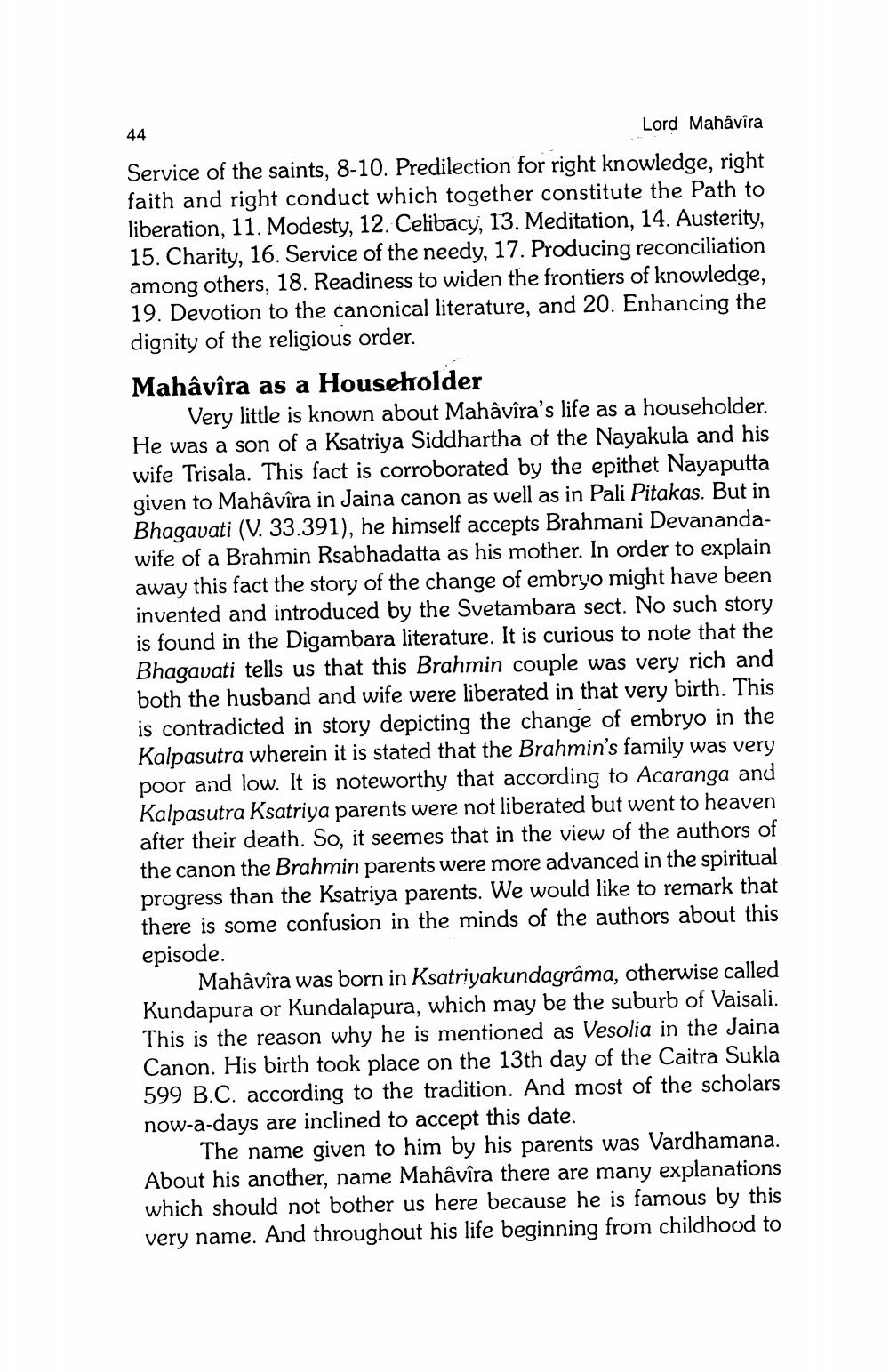________________
44
Lord Mahavira
Service of the saints, 8-10. Predilection for right knowledge, right faith and right conduct which together constitute the Path to liberation, 11. Modesty, 12. Celibacy, 13. Meditation, 14. Austerity, 15. Charity, 16. Service of the needy, 17. Producing reconciliation among others, 18. Readiness to widen the frontiers of knowledge, 19. Devotion to the canonical literature, and 20. Enhancing the dignity of the religious order. Mahâvîra as a Householder
Very little is known about Mahâvîra's life as a householder. He was a son of a Ksatriya Siddhartha of the Nayakula and his wife Trisala. This fact is corroborated by the epithet Nayaputta given to Mahâvîra in Jaina canon as well as in Pali Pitakas. But in Bhagavati (V. 33.391), he himself accepts Brahmani Devanandawife of a Brahmin Rsabhadatta as his mother. In order to explain away this fact the story of the change of embryo might have been invented and introduced by the Svetambara sect. No such story is found in the Digambara literature. It is curious to note that the Bhagavati tells us that this Brahmin couple was very rich and both the husband and wife were liberated in that very birth. This is contradicted in story depicting the change of embryo in the Kalpasutra wherein it is stated that the Brahmin's family was very poor and low. It is noteworthy that according to Acaranga and Kalpasutra Ksatriya parents were not liberated but went to heaven after their death. So, it seemes that in the view of the authors of the canon the Brahmin parents were more advanced in the spiritual progress than the Ksatriya parents. We would like to remark that there is some confusion in the minds of the authors about this episode.
Mahâvîra was born in Ksatriyakundagrâma, otherwise called Kundapura or Kundalapura, which may be the suburb of Vaisali. This is the reason why he is mentioned as Vesolia in the Jaina Canon. His birth took place on the 13th day of the Caitra Sukla 599 B.C. according to the tradition. And most of the scholars now-a-days are inclined to accept this date.
The name given to him by his parents was Vardhamana. About his another, name Mahâvîra there are many explanations which should not bother us here because he is famous by this very name. And throughout his life beginning from childhood to




